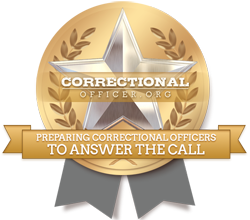The Importance of Education
If you are considering a career in corrections, law enforcement or the criminal justice system, a degree in criminal justice is the first educational step towards a rewarding career. While it is certainly possible to find employment with only a high school diploma, historical data has proven that jobs that do not require a degree tend to be lower paying and have comparatively poor working conditions. In a study published by the Federal Reserve Bank of New York, the past four decades of data have shown that those with a bachelor's degree earn an average of 56% more than their peers who only have a high school education. In recent years (2001-2013) the wage advantage of individuals with a bachelor's degree has risen to an astounding 75%, with employers consistently showing that they are willing to pay higher salaries to candidates with a college degree, even for jobs that are not considered college level positions. In the criminal justice field, this gap is potentially broader. Higher paying positions with better benefits are typically found at the state and federal level, where a bachelor's degree is the minimum requirement. Even at the local level, an increasing number of agencies will require some level of college education (an associate’s degree or higher) to become an officer.
Why a Criminal Justice Degree?
A bachelor’s degree in criminal justice is the preferred area of study for all correctional and law enforcement agencies across the United States because students receive a broad introduction to the operation of the criminal justice system. A degree in criminology is also a good qualification, but to become a correctional officer or work in law enforcement a degree in criminal justice is recommended. Students enrolled in criminal justice programs will take courses that focus on techniques for crime detection, detention of criminals, and basic theory on our systems of prosecution, punishment, and rehabilitation.
Read more about criminal justice degrees.
What to Expect from a Criminal Justice Program
A typical college level criminal justice program will cover a broad spectrum of topics. During the first year of study, most programs are designed to focus on law enforcement systems, court systems, and correctional systems. The goal of the first year is to give a student a thorough understanding of the fundamental components of the criminal justice system. Introductory and intermediate level programs will cover essential subjects such as ethics, psychology, sociology, criminal theory and operational procedures. As you advance past the first year, you will typically be given the option to select elective courses and core curriculum tailored to the career you wish to pursue. For example, a student seeking to become a correctional officer would take classes regarding correctional counseling, conflict resolution, correctional law, incarceration and institutions. Other important subjects include Victimology, Juvenile Delinquency, Community Supervision, Criminal Justice Administration, and the Penal System. All graduates applying for employment with a government (or private) agency, are expected to have a firm understanding of the following:
- How law enforcement systems work.
- How court systems work.
- How correctional systems work.
- How these three systems interface.
- Ethical responsibilities of an officer.
- How to peacefully resolve conflict.
- How to interact effectively with your colleagues and with incarcerated offenders.
Earning Your Criminal Justice Degree Online
In the past, the only way to obtain a college degree was to enroll in a college or university and attend classes on campus. The requirement to be physically present on campus often presented a barrier to potential students. Community colleges filled this gap in part because they were geographically convenient for potential students. Evening classes have also proved to be very popular for people who held day jobs but sought to complete their degree. With the evolution of technology, educational systems have been transformed. Increasingly less emphasis is being placed on being present in a physical classroom at all levels of education.
In many ways, distance learning works the same way as obtaining a degree on a college campus. The courses are structured the same way with lectures, assignments, projects, and testing. For many classes, you will be required to obtain text books. You will be required to have regular interaction with your classmates and instructors. The requirements for graduation in any given field are typically the same requirements you would find on a physical campus.
After you are enrolled in an online program, you will begin to take the classes required to complete your degree. You will need to have access to a computer. Your computer must meet the basic requirements of the school. Ideally, the computer should be newer, and you must have a reliable internet connection. Each school is different, but there will be some type of course management software. A common choice is a program called Blackboard. You want to make sure that you know how to navigate in the online environment before classes start. Most schools offer an online tutorial and technical support.
Your course work will generally involve assigned readings and listening to lectures from your professor. Typically these lectures have been pre-recorded, but some colleges do offer live sessions which give the student an opportunity to ask questions. Each class will have assignments which are either completed online or completed offline and uploaded. The assignments will have deadlines which must be complied with to receive credit. Almost all online college programs have requirements for regular interaction with your classmates. Some times this is done by posting comments on a discussion board. Other classes have regular discussion sessions held at specific times and conducted via Skype or a similar program. For courses requiring hands-on work, such as lab work, you may be required to obtain supplies to complete the lab.
With the growing popularity of online colleges, many traditional colleges have been forced to offer online classes in order to remain competitive. Many colleges and universities now offer hybrid programs. In a hybrid program, part of the work is accomplished via distance learning, and part takes place in the class room. Hybrid programs are an excellent option for a student who wants to focus in an area such as criminal investigation were more lab work is required.
Are Online Programs Reputable?
Accredited online criminal justice programs are considered to be of the same quality as traditional degree programs. The issue is finding out if your program is “accredited.” Do not assume that your school is accredited just because they say they are. You need to dig deeper. You need to know whether the accreditation agency is legitimate. The Council for Higher Education Accreditation and the U.S. Department of Education both investigate whether accreditation agencies are legitimate. The Council has a list available on its website of legitimate accreditation agencies. Only consider schools which have received accreditation from a legitimate agency.
Additional Education Options
While a bachelor’s degree is without question the best degree for a job candidate to possess, there are other options. A bachelor’s degree is a four year program at a college or university. In the U.S. there are also many associate's degree programs. An associate’s degree typically takes two years to complete. Additionally, there are many community colleges or trade schools offering certifications in criminal justice. A certification means that you have completed a specialized form of training. Certification programs typically take less than a year to complete, and do not offer the in-depth curriculum of a bachelor's program, but you can complete basic studies in a short period of time. If you are considering a certification program, keep in mind that these programs are not as highly regulated, and graduates often end up pursuing further education to remain competitive in the workforce.






